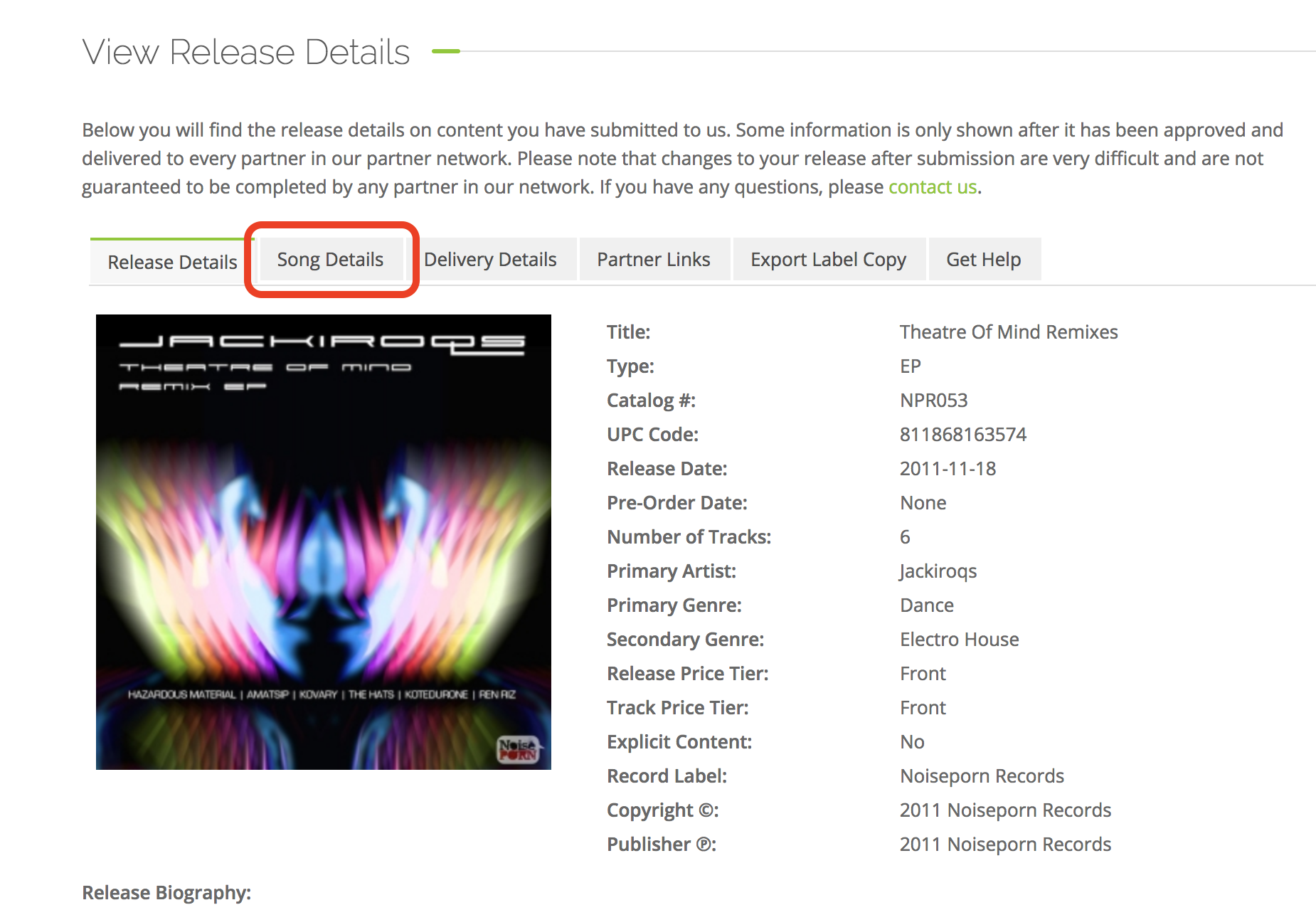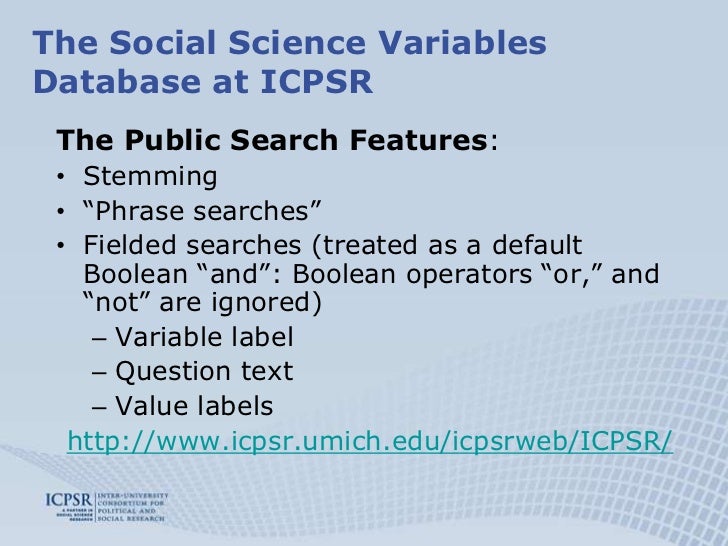
How the elements of your citation should be combined and styled depends on the style in use for citations in textual publications.

Creation date: Date of creation dataset (important in case of an unpublished dataset).Edition of version: Number that indicates the version or edition.PID (only refer to an URL if no PID is available).Publisher + Location: Distributor of the dataset.This can be a person, a group or an organization When building a data citation at least use the following elements: Below you can read more about the several available standards for PIDs. PIDs are more persistent than URLs, which often don’t work after a few years (‘link rot’).
#Icpsr codebook code
But they also contain a persistent identifier ( PID), a unique code by which the dataset can always be found. Referring to datasets in your publication is in many ways similar to citing traditional resources, with the author(s), year of publication, title and publisher as elements. Furthermore, formal citing makes it possible to track the impact of datasets through publications that cite the dataset. It also makes it easier for other researchers to locate and access the data for replicating, verifying or other forms of academic usage. Standards for the citation and referencing of data are a more recent development.īy citing the dataset you give proper credit to the researcher who developed the dataset. For these traditional publication forms standards for citing and referencing have long been established. More and more it’s recognized that data generated in the course of research is just as valuable for the academic discourse as book chapters and articles in journals. Log in or create a MyData Account - you may also use your ORCID to log in.“Data citation refers to the practice of providing a reference to data in the same way as researchers routinely provide a bibliographic reference to other scholarly resources.”

Outlines the responsibilities of the user who downloaded the datasetĪ MyData account is required to access many of the features that ICPSR provides. Typically contains a list of all data files with checksums, number of records/variables, etc Describes the dataset, its variables, their locations, etc There are several types of files that can be included with any data set:
#Icpsr codebook pdf
Electronic codebook files are generally available as PDF files, text files (TXT), or Microsoft Word documents (DOC or DOCX).
#Icpsr codebook software
This format is can be decompressed using decompression software such as WinZip, 7-zip, Unarchiver, or various command line utilities.
#Icpsr codebook zip
The user is responsible for performing any procedures required to lift additional restrictions.Īll data files arrive in compressed ZIP format from ICPSR and you will need to decompress the files prior to using them. Note that some data sets have additional restrictions on use and access. There are studies that are wholly or partially restricted from viewing and use, generally for security/privacy concerns, and these studies will contain information about those restrictions in the study documentation. Some studies are freely available, while most studies require membership in ICPSR for access. Available Dataįind available data at the ICPSR website. Individual datasets may have further restrictions regarding use, sharing, and citation. ICPSR data may not be redistributed to others, nor may it be used for the advancement of any institution other than the University of Maryland. Data retrieved from ICPSR may be used only for research that is to be performed by and used for the purposes of the University of Maryland. The ICPSR membership is available to current Faculty and Students at the University of Maryland (College Park campus only).

The College of Behavioral and Social Sciences (BSOS) and the University Libraries have partnered to provide campus-wide access to ICPSR for data access so that faculty, staff, and students can easily access data for coursework and research.

Digital Repository at the University of Maryland (DRUM).Request Onsite Use of Special Collections.Special Collections Account Archives and special collection requests Exit Accounts


 0 kommentar(er)
0 kommentar(er)
